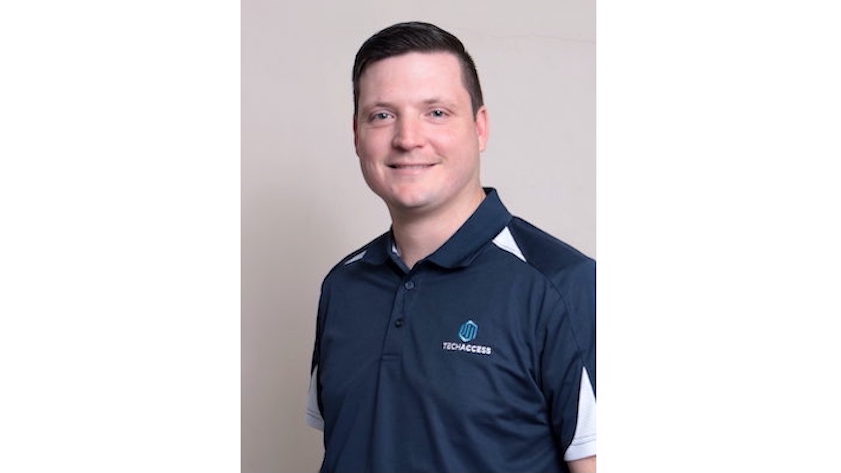RT Systems Brings Packet Power to South Africa's Data Centers
We are pleased to announce RT Systems as our partners in South Africa. Data centers in South Africa face rapidly escalating power costs, and RT...
3 min read
![]() Packet Power Team
:
May 24, 2023 7:00:00 AM
Packet Power Team
:
May 24, 2023 7:00:00 AM

Consistent, reliable power is the lifeblood of data centres and colocations. Many African nations continue to struggle with regular power disruptions and loadshedding that put these critical facilities in jeopardy of going down with little or no notice.
The power situation in South Africa is so severe that President Cyril Ramaphosa has told the nation, “The energy crisis is an existential threat to our economy and social fabric.” South Africa’s central bank has lowered its forecasted GDP growth for 2023 to just 0.3% because of the power cuts.1
From Nairobi to Lagos and from Cairo to Johannesburg, data centre operators across Africa are building extensive backup systems with generators, batteries, and renewable power sources. Many older data centres were not built with power sensors and monitoring systems.
Jaxon Martin knows this firsthand. Martin is the Chief Technology Officer for South Africa-based TechAccess, which recently partnered with Packet Power to service and retrofit African data centres so they can maintain uptime and optimize their operations.
Jaxon says operators are now looking for affordable, wireless options that can be retrofitted into facilities.
Q: Jaxon, why are data centres deciding not to be connected to a nation’s power grid?
A: I think data centre operators don’t want to become reliant on the local utility-owned company. There’s only one in South Africa (where TechAccess has its headquarters). With all the rolling blackouts, generators are kicking in here twice a day. For most businesses, enterprises, colocation providers, data centres, etc., the generators are coming on multiple times a day.
They also want to bring down costs because the cost of energy is increasing significantly. Although in context, and in relation to the rest of the world, it’s still relatively cheap in South Africa, it is still increasing drastically. So the local providers are obviously worried about that.
Data centres that procure power independently of the grid want to understand clearly what they use, how much they consume, and at what cost. With the correct monitoring tools and software in place, they can gain valuable insight and metrics around consumption.
Many data centres in Africa are using a two-pronged approach to energy monitoring. First, they need to have confidence that the generators and backup battery systems they have installed are both reliable and available when power goes out. Wireless DC power monitors can tell operators whether a system is operating and at what level of efficiency.
Second, operators are installing energy monitoring systems on power distribution equipment like busbars and panelboards inside their facilities to measure how the individual pieces of equipment within a data centre are working. This allows operators to feel confident that their facilities won’t incur an outage because of equipment failure, and it gives them the data they need to do things like plan for the future, submeter billing, and optimize equipment performance.
Resource: Guide to Data Centre Monitoring
Q: How does energy monitoring help companies be more productive?
A: I was working with one of the largest banks in Africa at their data centre last month. And some of the maintenance guys were kind of on call 24/7 because of the outages. They hadn’t gone home in two days straight because they were having to monitor the fuel for the generators and the voltage from the batteries.
Say a battery is built to last for five years, but it’s cycling so often that it may only last two or three years the way it’s being used now. You need to be able to see when the voltage coming from it is falling.
Q: Where has TechAccess worked with data centre operators and what are the common challenges they face retrofitting their facilities with energy monitors
A: We’ve worked with data centres throughout Sub-Saharan Africa, including South Africa, Mozambique, Zambia, Kenya and Nigeria.
Operators are not happy with the price of the busbars and monitoring boxes for them. It’s ridiculously expensive. And there’s no competition. They end up buying it from one supplier locally. There’s no one else that distributes the product, so they can charge what they want.
The time it takes to deploy a system is important too. A solution that transmits data wirelessly and is pretty much plug and play … can provide value for the customer.
A data centre may be under the impression that a retrofit project could take 12 to 14 weeks. But then we tell them that within four or six weeks, you’re done. They’re very impressed with that.
TechAccess has become a distributor of Packet Power products to give data centre operators across Africa more choices when it comes to finding wireless energy monitoring solutions.
Q: What is it you like about Packet Power’s offering
A: It’s a complete solution. So you’ve got the hardware, you’ve got the software side. You're offering the client a full package from start to finish that is very easy to install. So I think there’s a lot of value there.
We are pleased to announce RT Systems as our partners in South Africa. Data centers in South Africa face rapidly escalating power costs, and RT...

TechAccess and Packet Power announced their new partnership today, bringing Packet Power’s full suite of innovative power and environmental...

Although liquid cooling is already widely used in many data centers, further expansion of the practice is coming fast. A market study in Asia...